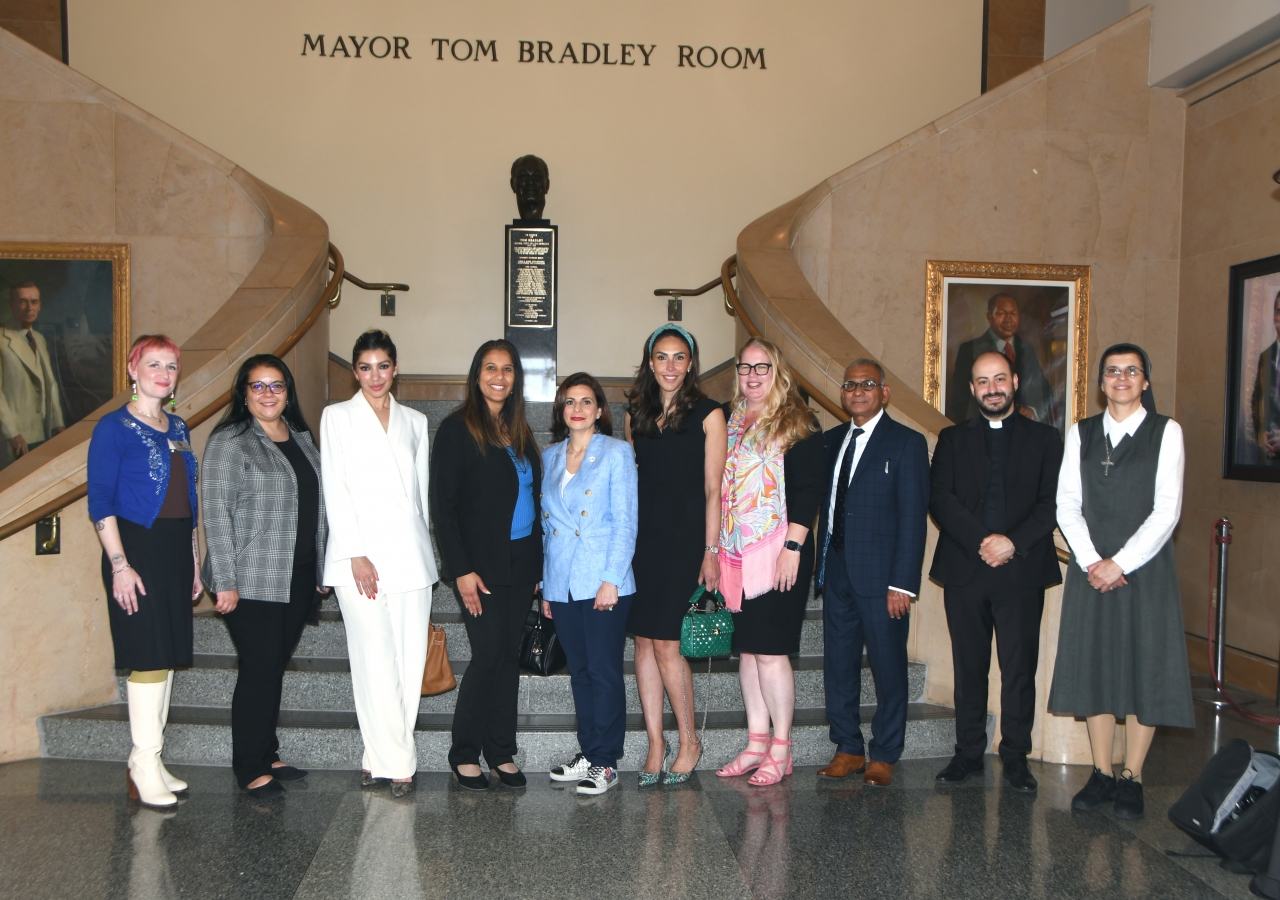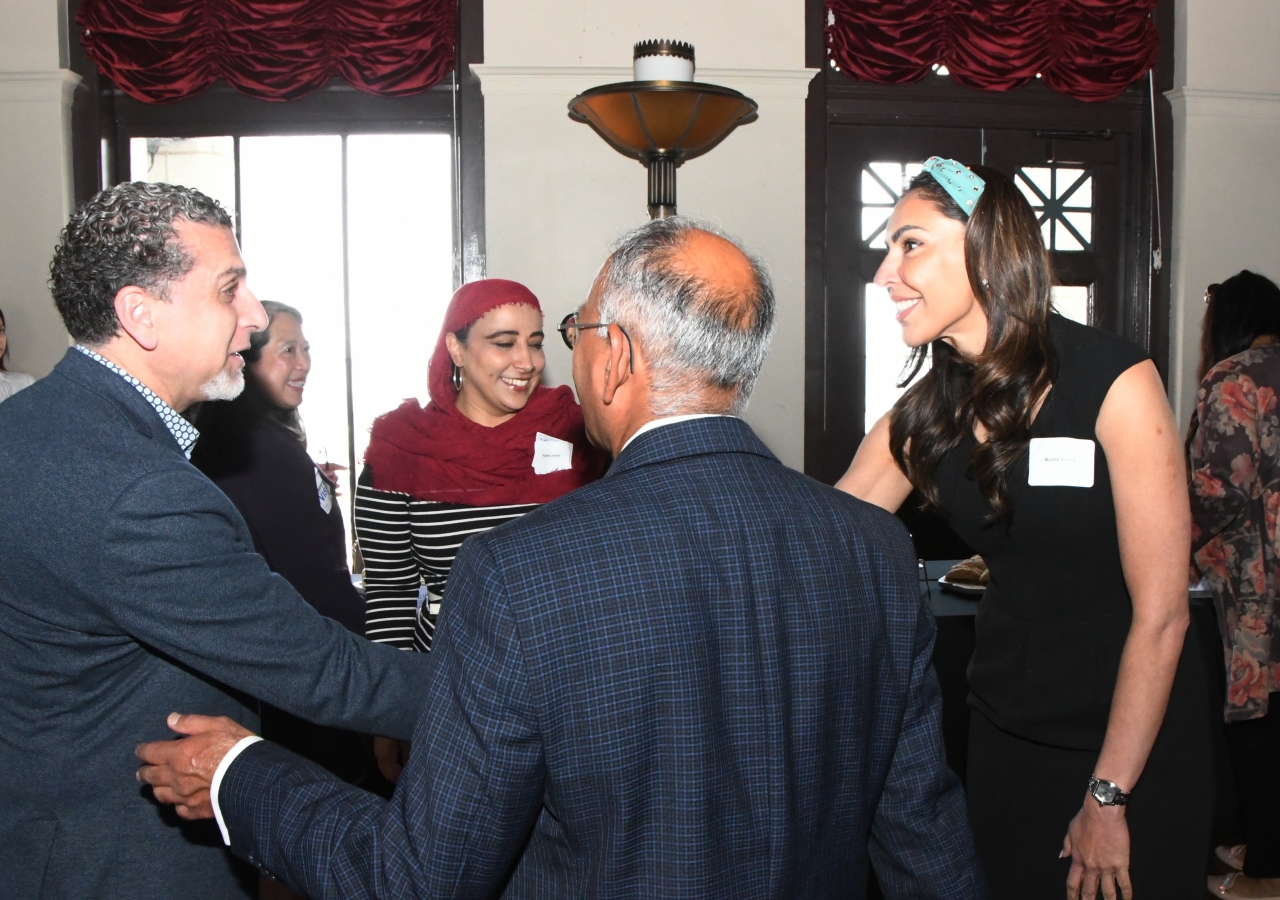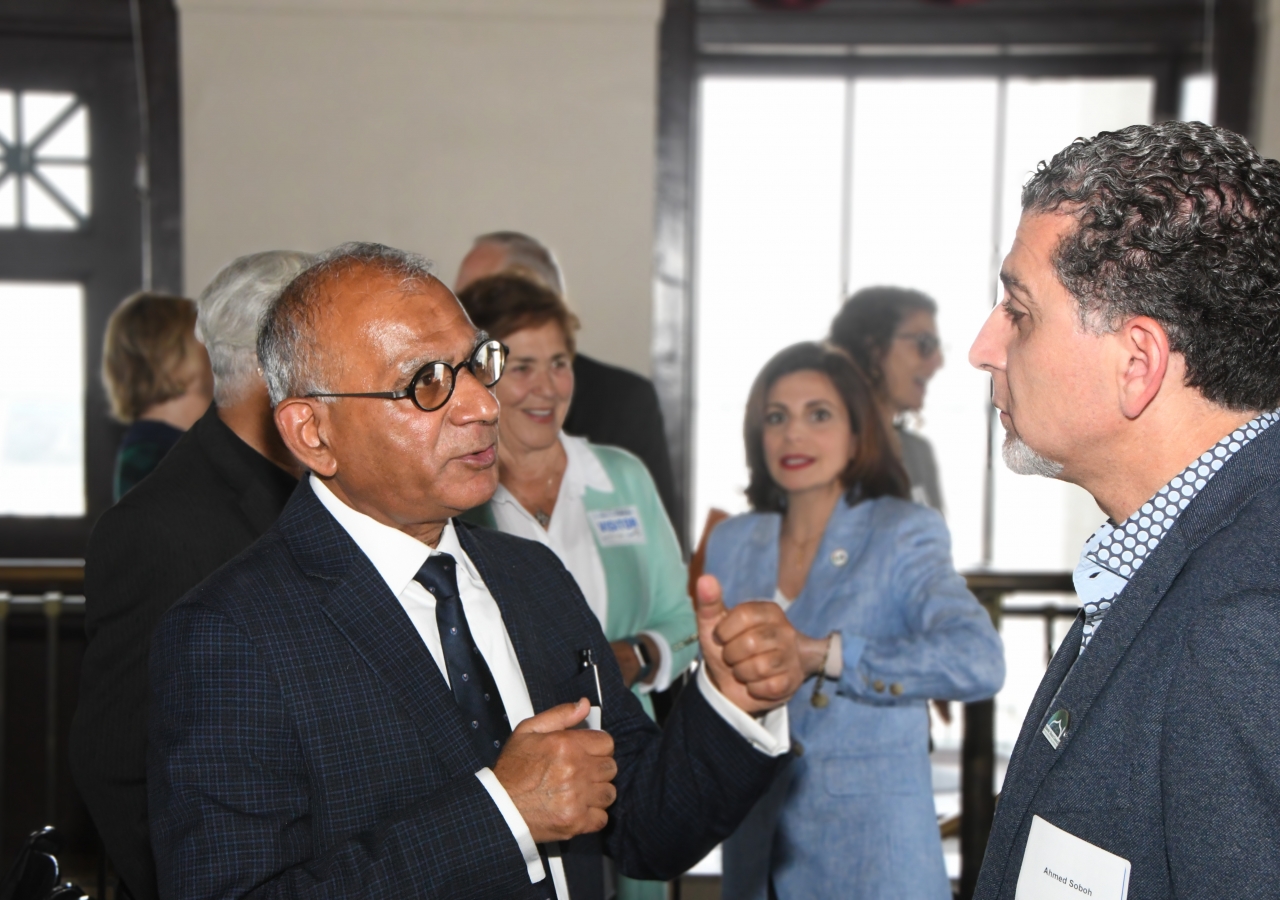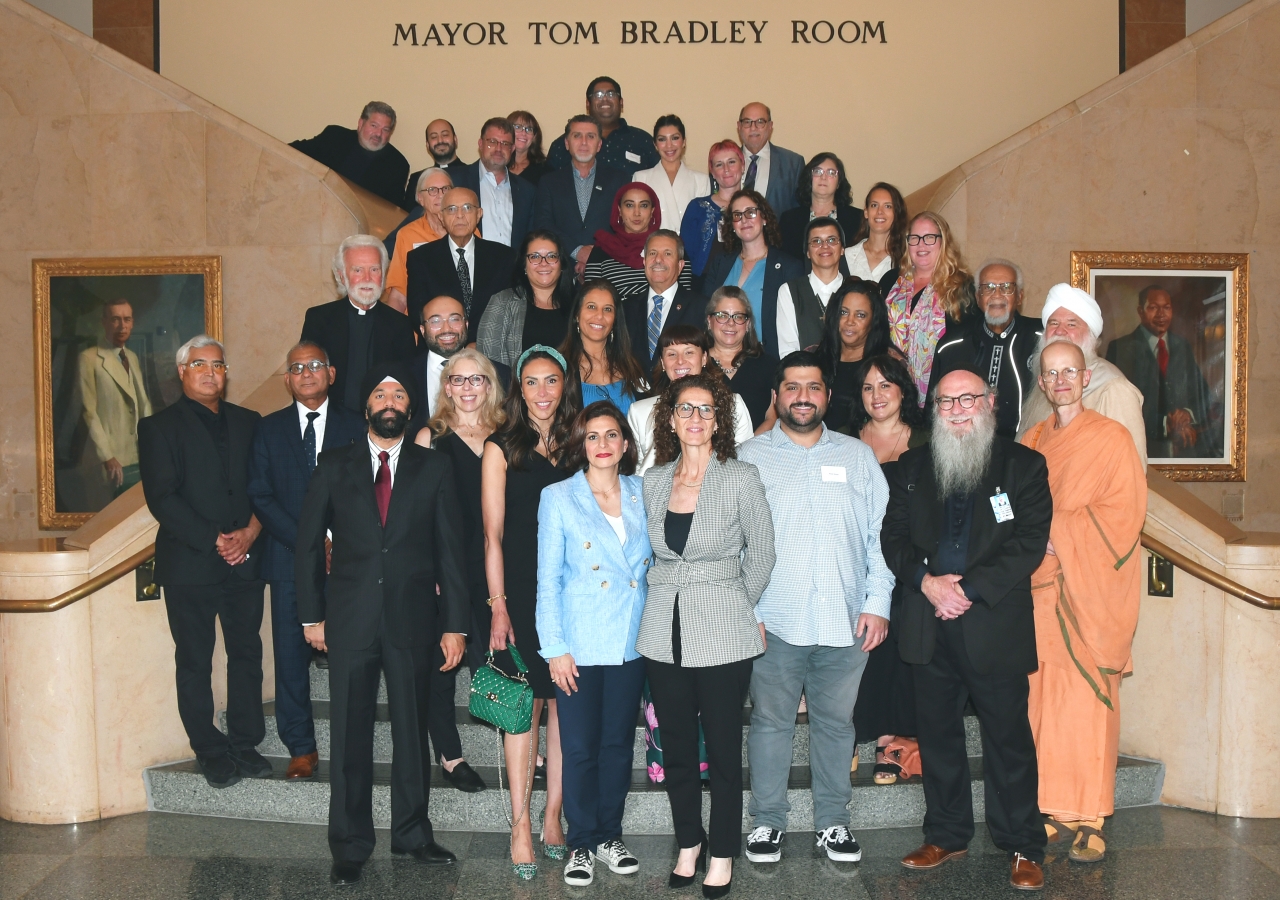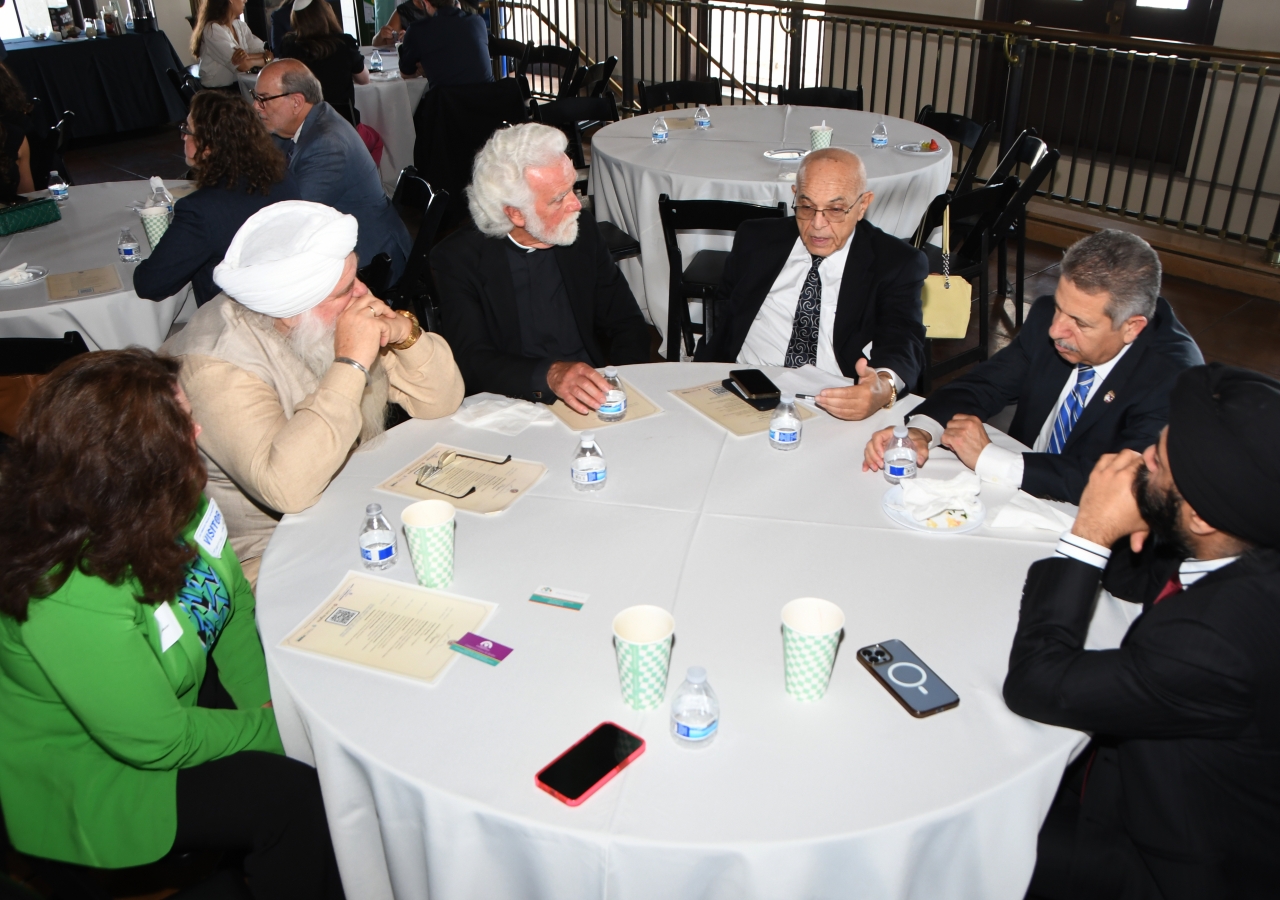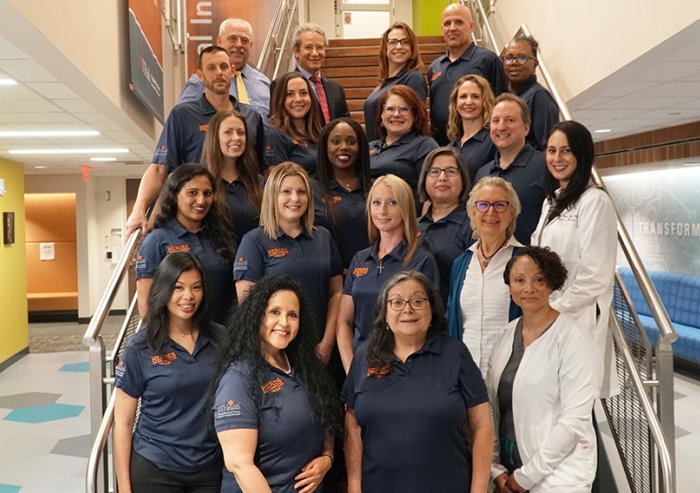“Pluralism means reconciling what is unique in our individual traditions with a profound sense of what connects us to all of humankind.” Mawlana Hazar Imam, Convocation address at the University in Edmonton, June 9, 2009.
A Day of Religious Pluralism, pioneered in Los Angeles, illustrates how diversity and inclusion has been woven into the fabric of our city. The adoption of this day pluralism solidifies the commitment and pledge to build bridges of understanding to create a shining light in the City of Angels that can be emulated throughout our nation and throughout our world.
text image 3402
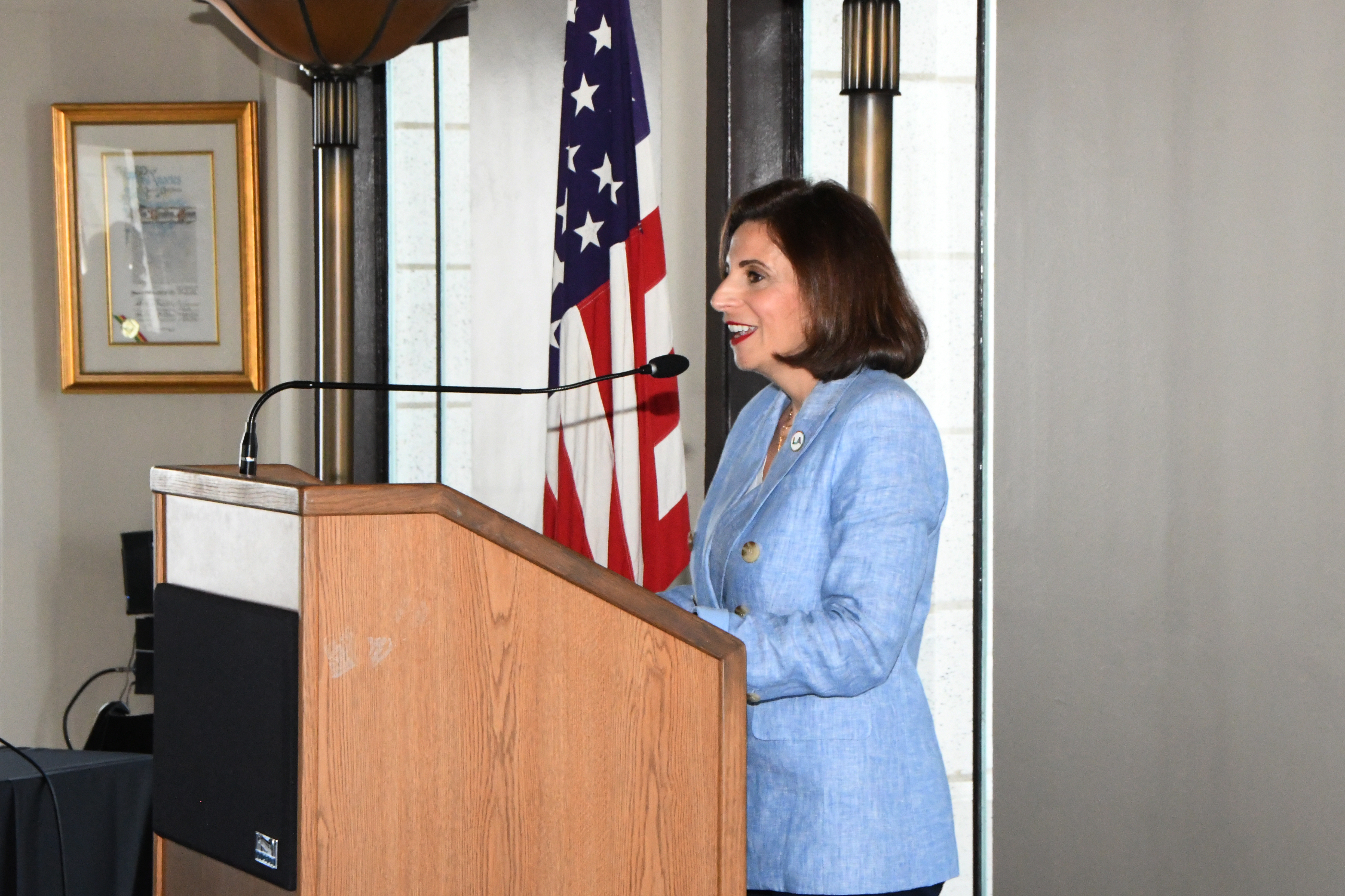
Joumana Silyan-Saba of LA Civil rights, began the day’s gathering by remarking that A Day of Religious Pluralism, at its inception in 2015, was envisioned by a collective of faith and civic leaders. It was the result of several years of multifaith engagements and dialogues to build bridges among the vastly diverse religious landscape of the city. Since then, this day continues to be memorialized, highlighting various themes to affirm this city’s commitment to the fundamental principles of pluralism.
This year’s theme was “Humanitarian Solidarity,” to reflect a time of humanitarian crises driven by climate and food and water insecurity, and political instability in 45 active conflict zones around the world. The day’s program explored our common commitment to humanitarian relief across all faith traditions, and the required global humanitarian response.
text 2 3546
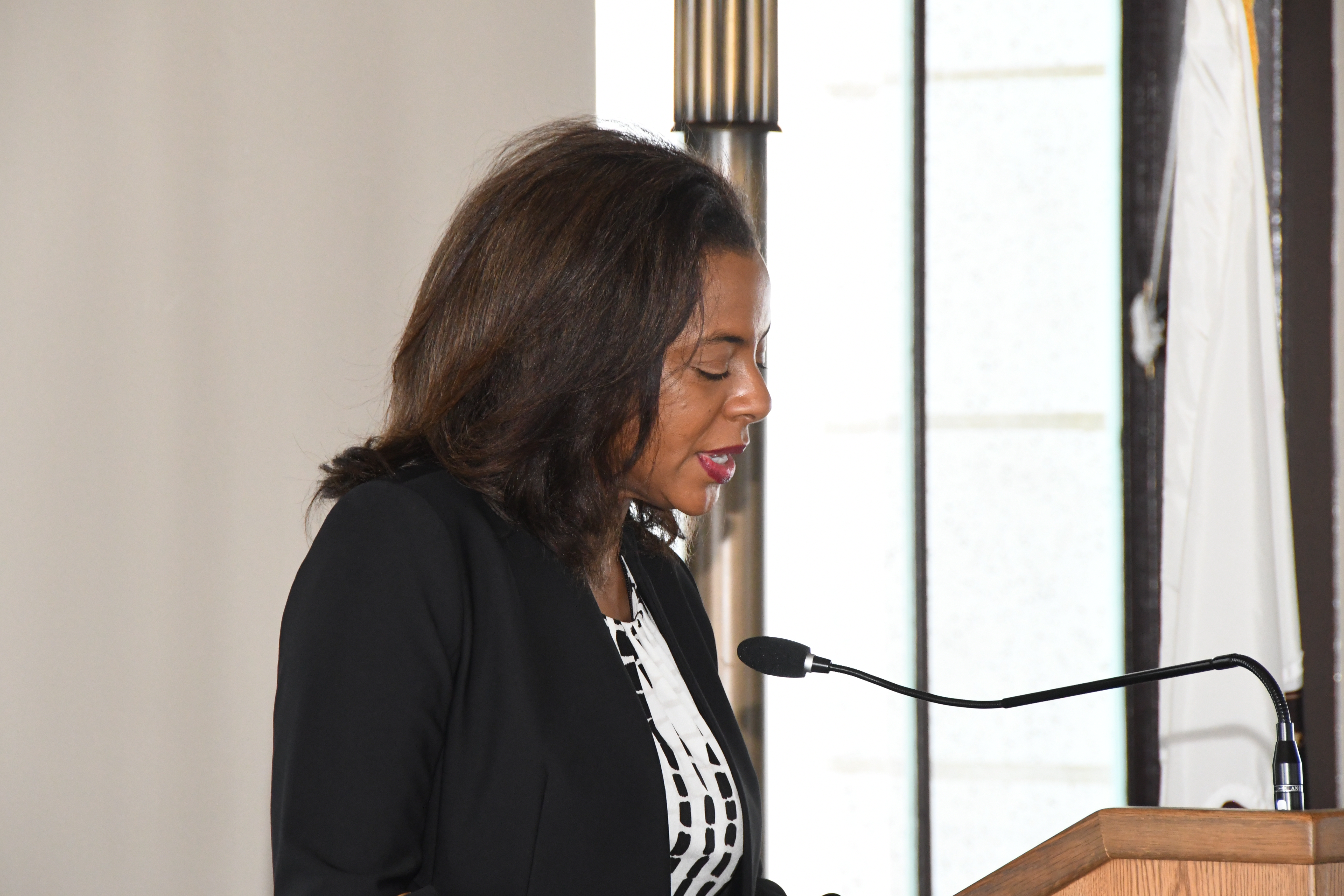
Opening remarks were given by Capri Maddox, Executive Director of LA Civil Rights and Brittnay McKinley, President of Human Relations Commission. Maddox noted that LA Civil Rights’ mission is to fight discrimination and to bring justice, equity, and inclusion to the city. Brittnay echoed this , saying,“Hate is not the strongest, it only seems like it is because it is the loudest.”
Dafer Dakhil of Omar Ibn Al Khattab Foundation commented on one of the pillars of Islam, zakat, representing the importance of giving to those less fortunate, from neighbors to others. He further emphasized the importance of community based institutions, such as Al Azhar University and how schools of thought have been paramount in intellectual dialogue. He highlighted Islam’s obligation to care for the weak and for those in need.
Rabbi Aryeh Cohen, of Ziegler School of Rabbinic Studies, began with words from the Torah, “Behold how good and how pleasant for siblings to sit together in unity.” He went on: “Have we not all one father, have we not one God who created us, why do we break faith with one another?” The Rabbi said we each have a responsibility towards one another; that ethics and religious laws are inseparable, and we have an obligation to care for others, not just within the Jewish community but in all faiths.
Varun Soni, Dean of Religious and Spiritual Life at the University of Southern California, began his opening remarks thanking The Ismaili Council for The Western United States for their unwavering support of representing, embodying, and promoting the critical work of religious pluralism and humanitarian work of the Aga Khan.
Soni then noted that while politics divided the University’s campus, the pain united them. Beyond any of his previous years, this year was by far the most where he witnessed suffering everywhere he looked on campus. He commented that Norway is consistently ranked the happiest country in the world, largely because they have the highest levels of trust - in their institutions, government, fiscal priorities, and in each other. He connected this to America’s Gen-Z students today, and their minimal trust in institutions, political, traditional, and financial. He cited their political independence and the disinterest of many in voting this fall, as well as their embrace of cryptocurrencies.
Referring to religious institutions, the young see religious institutions as hypocritical, Soni said. Without trust, he continued, it is difficult to feel a sense of belonging, often contributing to mental, emotional, and spiritual health crises; yet, their empathy and care for each is present, and they choose to translate their faith into action, helping victims of natural disasters or war through vigils, petitions, and service trips.
text 3621
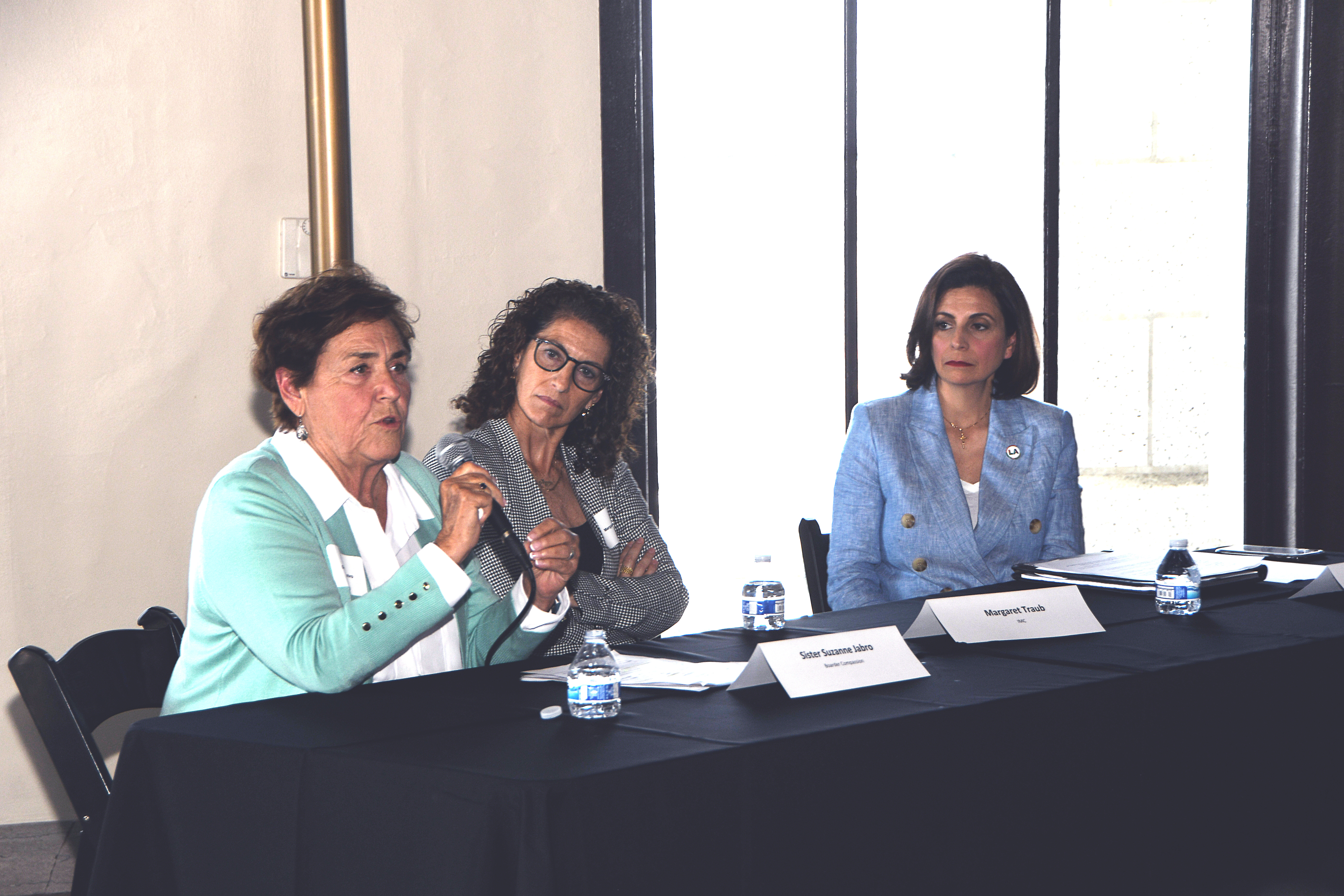
During the Humanitarian Solidarity panel discussion, Sister Suzanne Jabro, of Border Compassion, invited the audience to think deeper as she conveyed her empathy and concern for the global displacement of people. “We see you, we hear you, we love you and we want you to know, you are not alone”, a message to migrants who suffer tremendously near the U.S. Border. She urged all to properly discern what is reported in the media and not to lose care for the human spirit.
Margaret Traub of International Medical Corps, was also a guest on the panel and shared distressing statistics on the various crises happening in the world. She explained that the key to navigate complex emergencies is local 96 per cent of the time, because local people living in a conflict zone have a stake in their own recovery. She explained that her organization prepares before a disaster strikes, and that relationships with local organizations are key for optimal emergency management.
text 7323
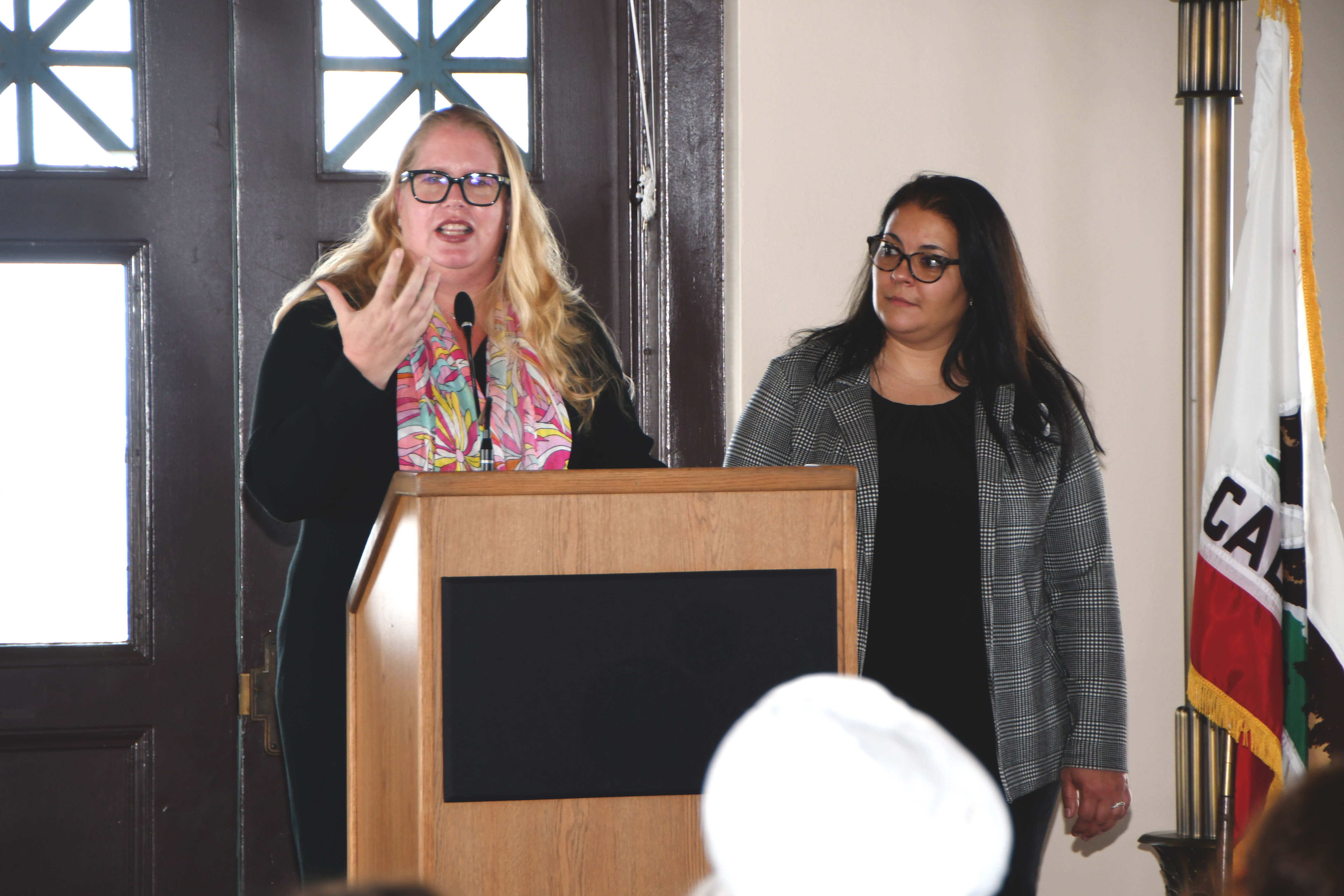
As the afternoon concluded, guided table discussions within one another and open dialogue was encouraged and led by Aziza Hasan, Executive Director of NewGround: A Muslim-Jewish Partnership for Change. Ultimately, as systemic change will continue to be a goal, Los Angeles is a beacon of hope and change will always be within our reach through tolerance, compassion, education, and understanding.

